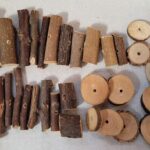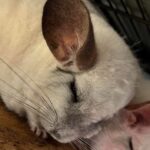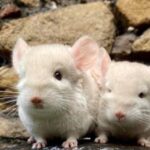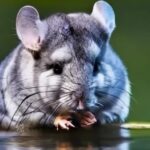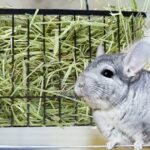Chinchilla Diet Supplements List: Chinchilla’s diet is very essential, for his health and longevity, and depending on the quality of the food you offer, with the correct nutritional quantities, you should not supplement their feed at least not frequently. Chinchillas main diet includes pellets, hay and water and these contain all the vitamins and minerals needed. Chinchilla supplements feeding, like vitamins or minerals, are not to be provided as their main diet as this can lead to many health issues. The main reason to supplemental a chinchilla is generally during times of illness, pregnancy, stress (depends on symptoms) or if a chinchilla suffers from a chronic disease that needs extra vitamins or minerals. Supplementing vitamin C and calcium pregnant and nursing chins, is good and helps to prevent calcium deficiency and malocclusion from occurring in the mother or kits in the future. If you supplement a chinchilla during times of illness, you should only continue until the chin is back to its normal healthy form.
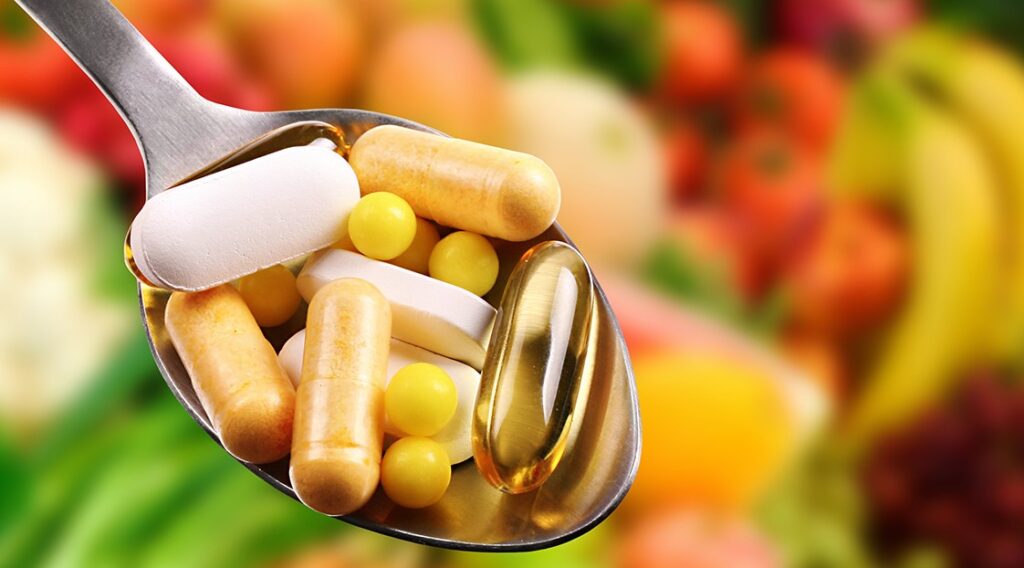
Chinchilla Diet Supplements List
There are many chinchilla supplements and of course, most of them are also for humans. The main chinchilla supplements we use are vitamins, minerals and probiotics. You can also find them in mixed form like for example powder or pills that have vitamins and minerals together.
Vitamins and Multivitamins
The most important vitamin we will choose is vitamin C for the dental benefits it provides. Chinchilla should receive vitamin C supplementing as it helps prevent disease and tooth abscesses by strengthening the connective tissue, which holds the chin’s open-rooted teeth in place. Vitamin C will also increase your chinchilla’s health and help increase fur density. Rose hips or rose hips powder are rich in vitamin C and can be served with the pellets. You can give vitamin C 3-4 times a week and the dose should be about 100 mg for each chin. The ways to give them vitamin C are by water, children’s chewing vitamin C with NO sugar, Pill (break first to match the dose of 100mg). The most suitable way is in the water though. Finally, you can buy multivitamins in liquid form and use them in chins water preferably once a week.
Thiamine or vitamin B1 is another vitamin that we will focus. Thiamine is important for the nerve system and the symptoms of thiamine deficiency include severe lethargy and fatigue, together with complications affecting the cardiovascular, nervous, muscular, and gastrointestinal systems. Affected chinchillas by thiamine deficiency show an in-coordination of their movements. Because of the damage of peripheral motor nerves, symptoms of thiamine deficiency are usually seizures, trembling and circling, and sometimes paralysis. Seizures, trembling and paralysis should last a short period of time and then the chinchilla should be able to run and eat normally. Thiamine must supplied, and also other methods to correct the deficiency in the diet, otherwise the condition will become serious, and other medical conditions intervene, which will probably cause the death of a chinchilla. Bring the chinchilla to vet for diagnosis and he can treat this deficiency with injections of thiamine or B-complex vitamins. Apart from vet’s treatment with injectable thiamine or B-complex vitamins, you must supplement your chinchilla good quality hay and wheat germ meal, to help overcome thiamine deficiency. Thiamine is also required as supplement during pregnancy, lactation, diarrheal conditions and growth.
Minerals
The most important mineral is Calcium. Calcium supplementing is ONLY necessary and recommended for two reasons. First for pregnant and nursing chins who should receive both vitamin C and calcium. Second for various dental problems. Chinchilla tooth should be dark yellow to orange to be healthy. When we say calcium deficiency for chinchillas, we mean that their tooth are white or very light yellow that is a very bad sign for chinchilla’s life and he should receive both vitamin C and calcium. Calcium deficiency can occur because of inheritance or bad diet, or both. Healthy chinchillas can receive some extra calcium from sources like cuttlebone and alfalfa hay cubes. Alfalfa hay cubes are high in calcium and you can give a hay cube per chinchilla as treat 2-3 time a week.
Another mineral is Salt. I would not mention it but unfortunately, there are some commercial products, for pets, like salt stones that you can buy from pet stores. Please stay away, as the pellets have already salt, and free use of a salt lick will result in them getting too much.
Other mineral supplemental products that can be supplied from pet stores are mineral wheels, stones or blocks. I advise not to use them more than 1-2 times a week and not more than a couple of hours at night.
Probiotics
This supplement is particularly useful for chinchillas that are undergoing stress or antibiotic treatment during which the normal gut flora may be seriously unbalanced by the stress or treatment. This supplement can also help as treatment with diarrhea or constipation. Probiotics are needed to help replenish the good bacteria in the digestive system. The good bacteria colonize in the chinchilla’s gut for a short time and assists in encouraging the right conditions to allow the natural gut flora to re-establish itself. Probiotics should be given at least 3-4 hours after antibiotics to prevent them from canceling each other out. Vitamin C and multivitamins should be included to replenish energy and to support the immune system. Probiotics can be found at pharmacies, preferably in powder or capsules so you can open them, and also you can find brands that except the main probiotic ingredient (acidophilus), contain enzymes also like papaya (papain enzyme), which is commonly used as a digestive aid. Probiotics could also be used at their main daily diet with the pellets, which would be good especially if the quality of pellets and hay is not as good as it should. If the quality of their main food is high, there is no necessary to provide every day probiotics but 2-3 times a week is still good.
CONCLUSION
Chinchillas require a suitable and correct balance of vitamins and minerals in their diet. Many minerals work with other minerals and vitamins so balance really is the key. Complete vitamin and mineral supplements may be useful for addressing any imbalances and health issues, but should never be overdone. Always the best is to consult your veterinarian. Fresh, high quality pellets, variety of hays, fresh water, limited treats, and a basic supplement of vitamin C will provide the optimum health for chinchillas.
